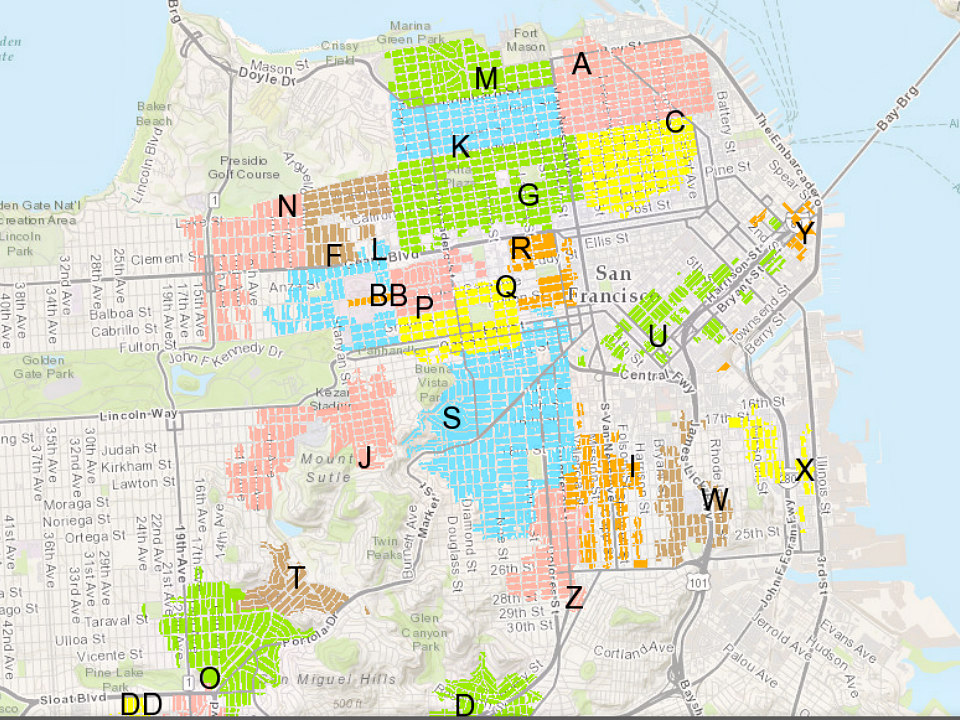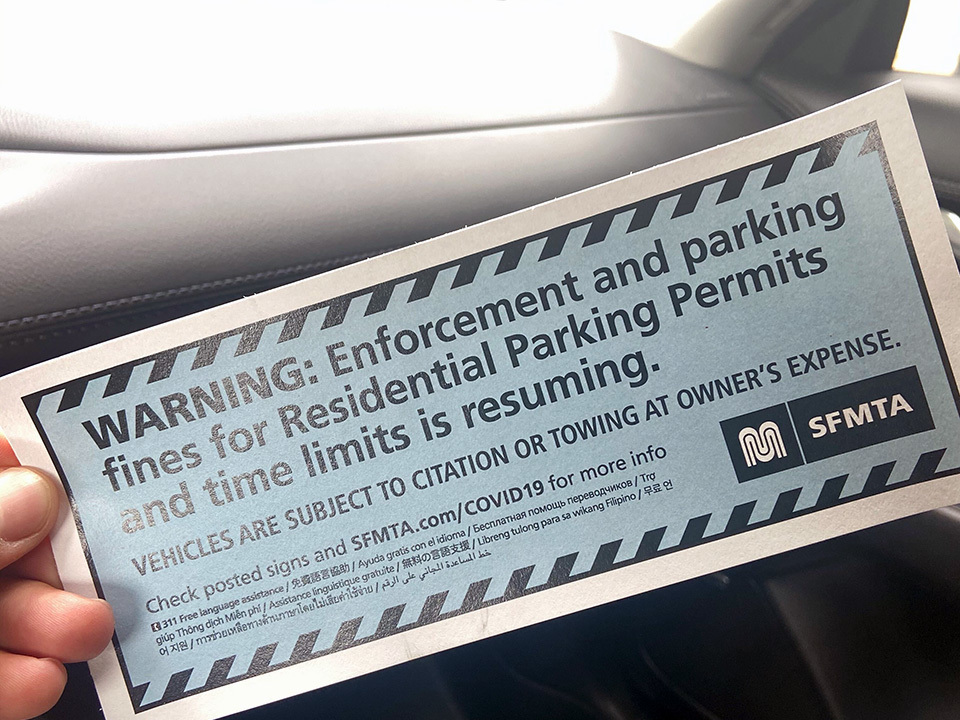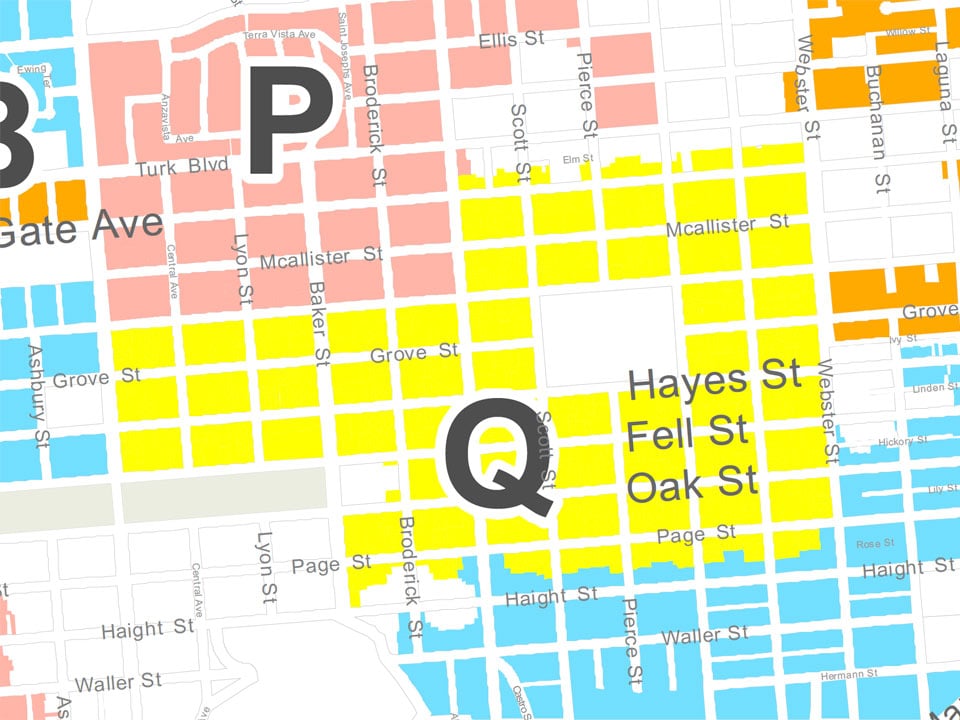Ever circled the block endlessly, praying for a parking spot in San Francisco? Navigating the city's parking regulations can feel like deciphering ancient hieroglyphs, but understanding the residential parking permit (RPP) system is key to sanity.
For newcomers and long-time residents alike, the San Francisco Municipal Transportation Agency (SFMTA) and Public Works play crucial roles in the RPP process. Both entities meticulously review applications, ensuring all necessary documentation is present and accurate. If revisions are needed, applicants can expect to be contacted, a process designed to streamline approvals and avoid future complications. A conditional approval indicates progress, but it hinges on the public comment period's conclusion.
| Attribute | Details |
|---|---|
| Name of Agency | San Francisco Municipal Transportation Agency (SFMTA) & Public Works |
| Function | Manage and Regulate the Residential Parking Permit (RPP) system |
| Location of Public Works Permit Center | 49 South Van Ness Avenue, Suite 200, San Francisco, CA 94103 |
| Key Responsibilities | Application Review, Permit Issuance, Enforcement of Parking Regulations, Handling Public Comments, Street Inspections |
| Additional Notes | SFMTA issues transferable parking permits for caregivers, transitioning to license plate enforcement, renewal notices are mailed, physical stickers are not being issued |
Complying with the RPP program involves following specific instructions, which are essential for all applicants. A critical regulation dictates that an applicant's vehicle cannot be registered within the very RPP area for which they are applying. This prevents misuse and ensures fairness among residents vying for limited parking spaces.
- Colin Farrells Love Life Wives Relationships More In 2024
- Axl Stephanie Guns N Roses Love Loss Life After Fame
The SFMTA offers a provision for caregivers, issuing one transferable parking permit per resident in a permit area, accommodating up to three caregivers. This permit counts towards the maximum of four permits allowed per address, balancing the needs of residents with caregiving responsibilities and overall parking availability. Such measures streamline the RPP application and administrative processes, making it more manageable for everyone involved.
It's important to note that these regulations and processes primarily apply to standard residential parking permits. Other types, including 1-day, visitor, press, city vehicle, teacher, and contractor permits, operate under different guidelines and are not affected by these changes. Knowing the specific type of permit needed is the first step in navigating the city's complex parking landscape.
Currently, around 70,000 San Francisco residents living in RPP areas purchase an annual parking permit, demonstrating the program's widespread use. Historically, these permits were issued as stickers, but the SFMTA has transitioned to enforcement by license plate recognition, eliminating the need for physical stickers and streamlining the enforcement process.
- Your Ultimate Guide Find Where To Stream Movies Shows
- Dee From Clueless The Ultimate Dionne Davenport Guide
For matters relating to other types of permits, the San Francisco Police Department permits unit, located at 1245 3rd Street, 5th Floor, San Francisco, CA 94158, handles inquiries and applications. This division ensures that various permits, from special event permissions to commercial transport, are properly managed and compliant with city regulations.
Individuals requiring disabled placards can find assistance at several DMV offices throughout San Francisco. For example, the location at 1377 Fell Street, SF, CA 94117, is one of many where residents can apply for or renew their disabled placards, ensuring accessible parking options are available throughout the city.
For those seeking further information or clarification on permit requirements, the San Francisco Public Works Permit Center is a vital resource. Residents can contact them for assistance with understanding complex regulations and ensuring their applications are correctly submitted. A street inspector from Public Works also plays a role, verifying that "no parking" signs and placards are correctly posted, maintaining the integrity of parking zones.
San Francisco residents interested in bringing parking permits to their neighborhood can learn about the petition and review process. Understanding these steps is essential for community members seeking to address parking challenges and create designated permit areas that benefit local residents.
To visualize permitted parking areas, both interactive and static permit area maps are available. These maps provide a clear understanding of designated RPP zones, helping residents and visitors identify where permits are required and avoid potential parking violations.
The process of renewing a San Francisco Residential Parking Permit (RPP) or contractor permit is typically initiated via a renewal notice mailed to residents. This notice contains crucial account information and a PIN number needed to access the online renewal system. Payment of any delinquent tickets is mandatory before a permit can be renewed, ensuring compliance with city regulations.
With businesses reopening and activity increasing, enforcement of parking time limits in all Residential Parking Permit (RPP) areas resumed on September 14, 2020. This measure aims to make more parking available to neighborhood residents, promoting turnover and reducing congestion. However, vehicles displaying a valid permit for their area, those with a disabled placard, or vehicles with disabled license plates are exempt from these time limits.
The City of San Francisco, including its officers, agents, and employees, operates a centralized office at 850 Bryant Street, Room 505, San Francisco, CA 94103, which oversees many aspects of city governance, including parking and transportation. This office serves as a central hub for inquiries, concerns, and administrative functions related to various city services.
In addition to standard parking meters and pay stations, monthly parking permits offer an alternative for those needing more consistent parking solutions. Monthly permits are available online, providing a convenient and accessible option for regular commuters and residents who require guaranteed parking.
Renewal notices are typically mailed four weeks before a permit expires, providing ample time for residents to renew. However, if a renewal notice or PIN number is lost, a reapplication becomes necessary. It's crucial to keep this information secure to avoid any disruption in permit coverage.
The online renewal option is available for standard annual residential permits, offering a streamlined process for eligible residents. However, this convenience does not extend to contractors, teachers, business/commercial entities, medical professionals, students, or caregiver permits, which may require alternative renewal procedures.
Residents are advised to watch for their renewal notice in the mail, as it contains a personalized identification number (PIN) and a link to the renewal page. Prompt attention to this notice ensures continuous parking permit coverage and avoids potential fines or penalties.
If a renewal notice is received, the renewal page provides a straightforward pathway to purchase the next year's permit. This online system simplifies the process, making it more efficient and accessible for a large number of residents.
In some cases, providing a copy of the most current vehicle registration may be necessary. Residents can email a copy to vintoplate@sfmta.com, ensuring that the SFMTA has accurate and up-to-date vehicle information for permit enforcement purposes.
As previously mentioned, the SFMTA has fully transitioned to enforcement by license plate for residential parking permits, eliminating the need for physical stickers. This technology-driven approach enhances efficiency and accuracy in monitoring permitted vehicles.
For those ordering contractor permits, delivery typically occurs within three weeks to the account address listed on the renewal notice. Planning ahead and ordering permits well in advance is advisable to avoid any potential delays.
The online service for renewing San Francisco residential parking permits offers a user-friendly interface and streamlined process. This system enables residents to quickly and easily renew their permits, ensuring they remain compliant with city parking regulations.
Payment of delinquent tickets is a prerequisite for permit renewal, underscoring the city's commitment to enforcing parking regulations and ensuring accountability among permit holders. Addressing outstanding tickets promptly avoids any complications during the renewal process.
To access the renewal system, both residential parking permit and contractor permit holders must enter the account and PIN numbers found on the letter they received. This dual authentication ensures that only authorized individuals can renew permits, safeguarding against unauthorized access.
If an individual has multiple PIN numbers, any of them can be used to log in to the renewal system. This flexibility accommodates various scenarios and simplifies the login process for permit holders with multiple accounts.
For those seeking a commercial parking permit, obtaining the required bond is a mandatory step. The certificate of authority and bond must match the applicant's name on the commercial parking permit application, ensuring legal compliance and accountability.
A copy of plans for the parking garage or parking lot is required to get approved.
Moving to a new city always comes with its set of challenges. For individuals relocating to San Francisco from elsewhere in California, the parking permit system can be particularly confusing. The nuances of RPP zones, application processes, and enforcement regulations often leave newcomers feeling overwhelmed.
The parking permit system can be notoriously complex, with many residents expressing confusion and frustration. Sharing experiences and seeking guidance from those who have navigated the system can be invaluable in understanding the intricacies and avoiding common pitfalls.
Even with a California-registered vehicle, specific requirements must be met to obtain a San Francisco RPP. A valid Real ID and proof of address are essential documents for verifying residency and eligibility for the permit.
For individuals seeking information or assistance related to transportation matters, the Department of Transportation, located at 200 E. 8th Floor, San Jose, CA 95113, can provide guidance. This department handles a wide range of transportation-related issues, including parking regulations and permit requirements.
During specific periods, such as the pandemic, temporary permit extensions may be granted. Valid pandemic permits in good standing were extended to March 31, 2023, providing temporary relief to permit holders during challenging times.
However, some permits may be placed on hold if they do not address ADA compliance, emergency access, and pedestrian safety issues. These measures ensure that all parking areas meet required safety standards and are accessible to individuals with disabilities.
Roadway (temporary street closure) permits do not qualify for extensions and require renewal. To operate a roadway temporary street closure on or after July 1, 2022, a new application must be submitted, ensuring that street closures are properly managed and coordinated.
Parking without payment is only allowed in general metered parking zones where payment isn't required.
Parking with time limits is also available in certain areas.
On September 14, the SFMTA resumed enforcement of parking permits and time limits in all 31 of San Francisco's residential parking permit (RPP) areas. This measure aimed to ensure fair access to parking for residents and manage parking demand effectively.
Applying for or renewing an RPP can be done online, providing a convenient and efficient way for residents to manage their parking permits. The online system offers a user-friendly interface and streamlined process, making it easier to comply with city regulations.
In the city of Oakland, renewing a permit online is contingent upon receiving a letter from the city indicating eligibility for online renewal. This targeted approach ensures that only eligible residents can access the online renewal system.
Alternatively, applications, required documents, and fees can be mailed to Ogawa Plaza, Oakland, CA 94612, providing an option for those who prefer traditional mail-in methods. This alternative ensures that all residents have access to the permit application process, regardless of their preference for online or offline transactions.
- Movierulz Unveiled Is It Safe Latest News Alternatives
- Crew Gaines Inspiring Story Of Resilience Challenges


